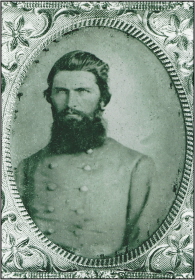I grew up in Union City, Tennessee, across the street from my great-grandmother, Lucy Whiteside Coble, the widow of J. A. Coble. Lucy Coble had also lost her father, Captain Samuel A. Whiteside, Forty-Eighth Tennessee Infantry, and her father-in-law, Private James Coble, during “The War Between the States.”
Told the story of Private Coble on many occasions, I always wondered what motivated Union Captain David Harts, 106th Illinois Infantry, to write a letter that appeared in The Jackson Sun in 1914 outlining Coble’s death. My mother and grandmother were always quick to explain it as the Yankee captain’s “guilty conscience.”
My research on the history surrounding his death went on for a long time, during which I developed an immense appreciation for sacrifices made by soldiers on both sides of the terrible conflict.
The result of this research is my book, “Monument to Healing: Two Soldiers and the Good Death, 1862 to 1914, published by The HillHelen Group in Jackson.
As Dr. Spurgeon King, my co-author of my book,, has written, Captain Harts shaped the latter stages of the story through his quest for personal redemption.
